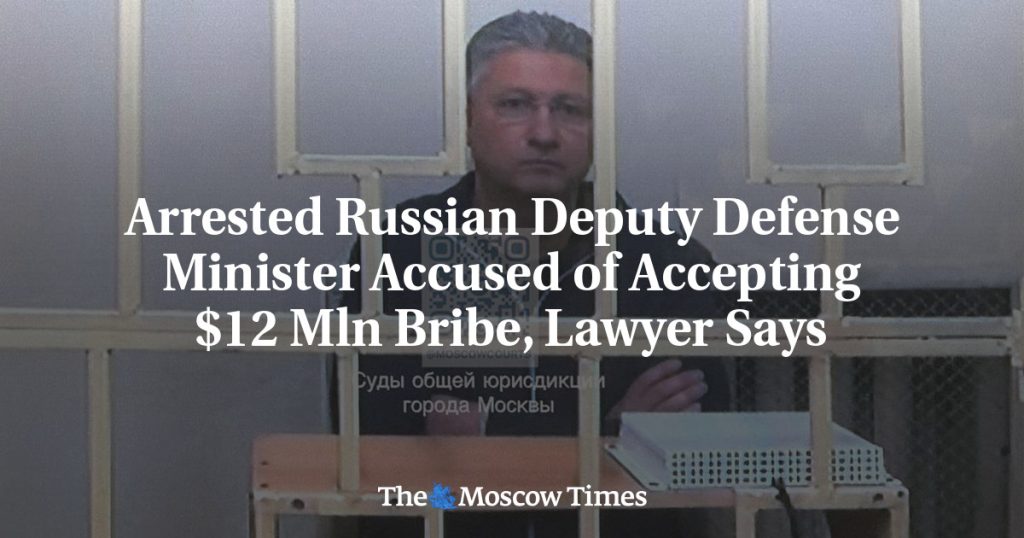Russian Deputy Defense Minister Timur Ivanov is facing accusations of accepting a bribe valued at over 1 billion rubles, which is equivalent to $12.2 million. The bribe is said to have taken the form of services, related to contracting and subcontracting work for the Defense Ministry. Ivanov, a close ally of Defense Minister Sergei Shoigu, could potentially face up to 15 years in prison for this large-scale bribe-taking. Despite the allegations, Ivanov has denied any wrongdoing.
Ivanov was responsible for overseeing various aspects of construction, housing, property management, mortgages, and procurement for the Russian military. He played a key role in the construction of the Defense Ministry’s Patriot Park, the Armed Forces’ Main Cathedral, and the reconstruction of Mariupol after its siege. The allegations against Ivanov are believed to have stemmed from media reports about his supposed involvement in corrupt practices related to military contracts. His lawyer has emphasized that the case is related to construction and denies any accusations of impropriety.
The Moscow City Court recently held an appeal hearing behind closed doors, where Ivanov’s request for house arrest was rejected. He will remain in pre-trial detention until at least June 23. This decision was made despite efforts by his lawyer to open the hearing to the public, as is typically not the case for bribery cases in Russia. There are also reports suggesting that Ivanov may be under suspicion for state treason, although the Kremlin has dismissed these claims as speculation.
The accusations against Ivanov have raised concerns about corruption within the Russian Defense Ministry and potentially involving high-ranking officials. The case highlights the challenges faced in ensuring transparency and accountability in government operations, particularly in the defense sector. With Ivanov’s close ties to the Defense Minister, the situation has the potential to create ripples within the Russian military establishment and government as a whole.
As the investigation into Ivanov’s alleged bribe-taking unfolds, there will likely be increased scrutiny on other officials within the Defense Ministry and potential reforms to prevent similar incidents in the future. The case serves as a reminder of the importance of combating corruption and ensuring integrity in all levels of government, particularly in sensitive areas like defense and security. The fallout from this scandal could have far-reaching implications for Russian governance and the reputation of its military leadership.


